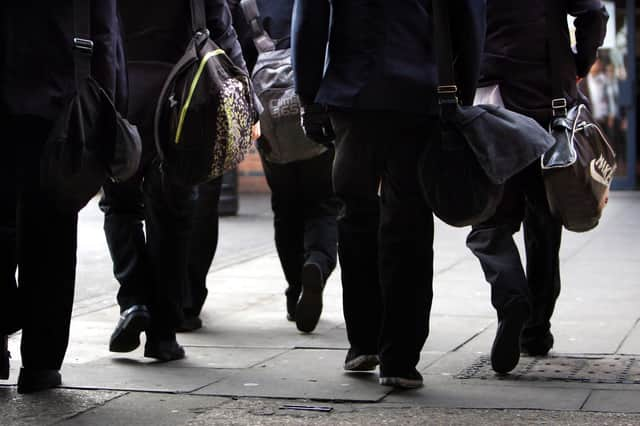Unauthorised school absences are above the national average in Portsmouth, new data reveals


The Association for School and College Leaders said attendance is "one of the biggest challenges" schools must face, with several complex factors contributing to the problem.
Department for Education figures show 84,000 of 2.7m school sessions in the latest spring term were missed without permission by pupils in Portsmouth.
Advertisement
Hide AdAdvertisement
Hide AdIt meant children in the area had an unauthorised absence rate of 3.1 per cent.
In the 2018-19 spring term, the unauthorised absence rate was 1.8 per cent, meaning it has increased by 72 per cent during the coronavirus pandemic.
Across the rest of Hampshire, excluding Southampton, the numbers were 301,000 of 18.5m school sessions missed, for an unauthorised absence rate of 1.6 per cent. The 2018-19 spring term rate was 0.9 per cent, equating to a 78 per cent increase.
The school day is split into a morning and afternoon session, with every child expected to attend all sessions.
Advertisement
Hide AdAdvertisement
Hide AdNationally, 2.3 per cent of pupils missed school without permission in the spring, almost double the 1.2 per cent who were absent from lessons in 2018-19.
Every area in the country has seen the rate of unauthorised absences rise by more than 30% since 2018-19.
Julie McCulloch, director of policy at the ASCL, said there are several complex factors causing rising absence rates including mental health issues, exacerbated by the pandemic, a lack of support for children with special educational needs, with schools lacking resources to deal with them, and the cost-of-living crisis.
She said: "It will take concerted government action to address these issues, all of which are linked to high levels of pupil absence, and ensure all children are getting the support they need at the right time."
Advertisement
Hide AdAdvertisement
Hide AdA Department for Education spokesperson said: "The vast majority of children are in school and learning, and we are taking action to increase attendance because it is vital for a child’s education, wellbeing and future life chances.
"Our mentoring programme, delivered by Barnardo’s, sees trained mentors work directly with 1,665 persistently and severely absent children and their families to understand and overcome the barriers to attendance and support them back into school."